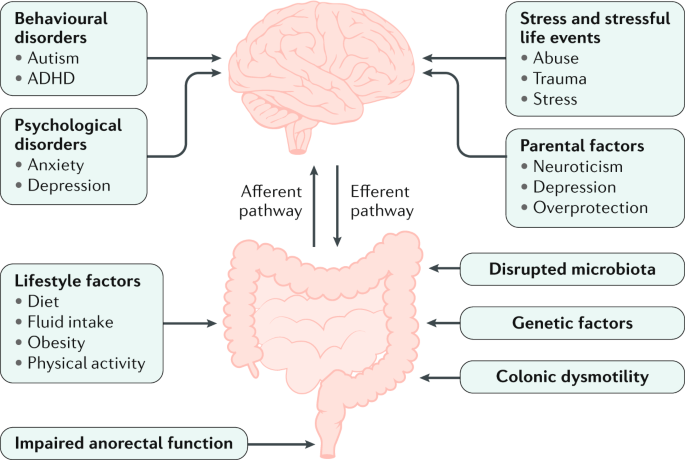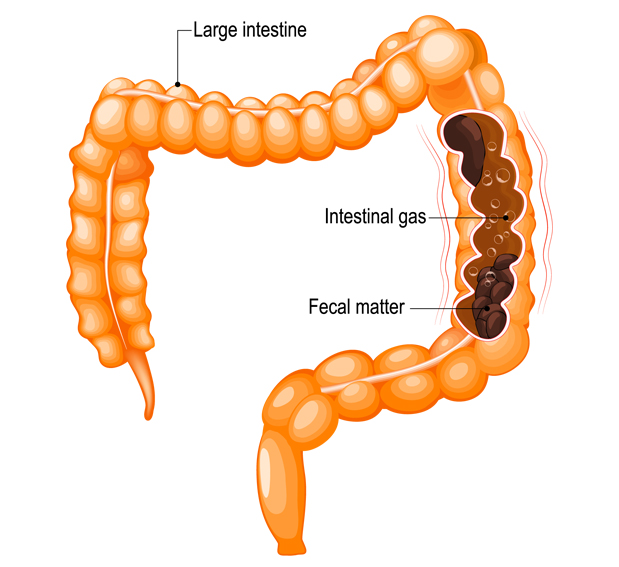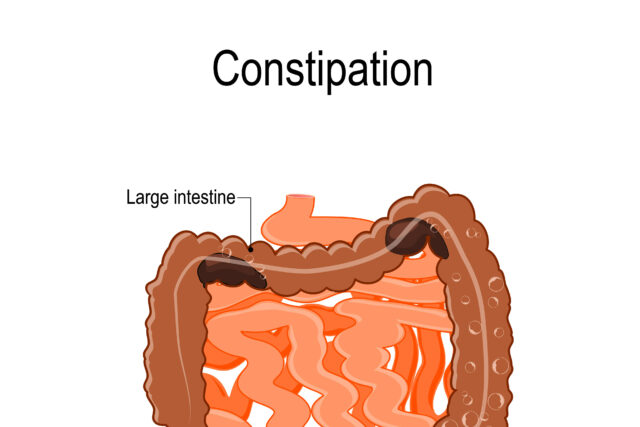Constipation is a common gastrointestinal problem affecting millions worldwide, leading to discomfort, bloating, and a significant decrease in quality of life. While traditional remedies and over-the-counter medications provide relief for some, the quest for a natural, effective solution brings us to probiotics. This article delves into how these beneficial bacteria can offer relief from constipation, exploring the science behind their effectiveness, the different types available, and how to incorporate them into your diet.
Table of Contents
Understanding Constipation
Constipation is characterized by infrequent bowel movements, difficulty passing stools, or both. It’s often caused by poor diet, lack of exercise, dehydration, or certain medical conditions. Understanding its impact on gut health and overall well-being is the first step towards finding relief.
The Role of Gut Health in Digestion
The Gut Microbiome: A Balancing Act
At the core of gut health is the gut microbiome, a diverse community of microorganisms that reside in the digestive tract. This microbiome is unique to each individual and is influenced by various factors, including diet, lifestyle, and genetics. A balanced gut microbiome is essential for several reasons:
- Digestion and Nutrient Absorption: Beneficial bacteria in the gut help break down complex carbohydrates, proteins, and fats, making it easier for the body to absorb nutrients. They also synthesize certain vitamins, such as vitamin K and some B vitamins, which are crucial for health.
- Immune System Support: The gut microbiome plays a critical role in educating and regulating the immune system. It helps distinguish between harmless and harmful pathogens, ensuring an appropriate immune response.
- Barrier Function: A healthy gut microbiome strengthens the gut wall, preventing harmful substances and pathogens from “leaking” into the bloodstream and causing inflammation or disease.
Disruption in Gut Health: Impact on Digestion
An imbalance in the gut microbiome, known as dysbiosis, can lead to various digestive issues, including constipation, diarrhea, bloating, and irritable bowel syndrome (IBS). Dysbiosis may result from factors like poor diet, excessive use of antibiotics, chronic stress, and infections. This imbalance disrupts the gut’s ability to process food and absorb nutrients efficiently, leading to symptoms of poor digestion and nutrient deficiencies.

Promoting Gut Health for Better Digestion
Maintaining or restoring gut health is essential for optimal digestion and overall well-being. Here are some strategies to support a healthy gut microbiome:
- Diet: Consume a diverse range of foods, particularly those rich in fiber, such as fruits, vegetables, legumes, and whole grains. Fiber supports the growth of beneficial bacteria in the gut.
- Probiotics: Incorporate probiotic-rich foods like yogurt, kefir, sauerkraut, and kimchi into your diet, or consider taking a probiotic supplement. Probiotics are live bacteria that can help restore the balance of the gut microbiome.
- Prebiotics: Prebiotics are dietary fibers that feed the beneficial bacteria in the gut. Foods rich in prebiotics include garlic, onions, bananas, and asparagus.
- Hydration: Drinking plenty of water is beneficial for the mucosal lining of the intestines and can help maintain a healthy balance of gut bacteria.
- Stress Management: Chronic stress can negatively impact gut health. Incorporating stress-reduction techniques such as meditation, exercise, or deep breathing can be beneficial.
Common Causes of Poor Gut Health
Poor gut health is a concern that affects many aspects of our overall wellbeing, from digestion to mental health, immune function, and beyond. Understanding the common causes of poor gut health is the first step toward making changes that can lead to better overall health. Here are several key factors that can disrupt the balance of the gut microbiome, leading to poor gut health:
- Poor Diet: Consuming a diet high in processed foods, sugars, and fats can harm the gut microbiome. These types of foods can promote the growth of harmful bacteria and reduce the diversity of the microbiome, which is crucial for good health.
- Antibiotic Use: While antibiotics are necessary for treating bacterial infections, excessive or inappropriate use can destroy beneficial bacteria in the gut along with the harmful ones. This can lead to an imbalance in the gut microbiome and contribute to poor gut health.
- Chronic Stress: Chronic stress can have a significant impact on gut health. It can alter the gut bacteria composition and increase gut permeability, sometimes referred to as “leaky gut,” where harmful substances can enter the bloodstream, leading to inflammation and other health issues.
- Insufficient Sleep: Lack of sleep or poor sleep quality can negatively affect the gut microbiome. Research suggests that disrupted sleep patterns can lead to changes in the composition of gut bacteria, which can impact the immune system and metabolism.
- Excessive Alcohol Consumption: Regular, excessive intake of alcohol can damage the gut lining, leading to increased permeability and affecting the balance of gut bacteria. This can contribute to inflammation and other digestive issues.
- Lack of Exercise: Physical inactivity can also lead to poor gut health. Regular exercise has been shown to promote the growth of beneficial gut bacteria and improve the integrity of the gut lining.
- Smoking: Smoking is harmful to gut health, as it increases the risk of gut inflammation and other digestive disorders. It can also alter the composition of the gut microbiome, promoting the growth of harmful bacteria.
- Use of Non-Steroidal Anti-Inflammatory Drugs (NSAIDs): Frequent use of NSAIDs can cause irritation and inflammation in the gut, leading to issues like ulcers and leaky gut syndrome.
- Environmental Toxins: Exposure to environmental toxins, such as pesticides and pollutants, can disrupt the gut microbiome and lead to poor gut health.
- Genetics: Genetics can also play a role in the composition of the gut microbiome and susceptibility to certain gut health issues. However, lifestyle and environmental factors have a significant impact and can often be modified to improve gut health.

Probiotics Explained
What Are Probiotics?
Probiotics are live bacteria and yeasts that are good for your health, especially your digestive system. Often referred to as “good” or “helpful” bacteria, they help keep the gut healthy by balancing the microbiome, which is the community of microorganisms living in the digestive tract. The concept of probiotics is based on the idea of replacing or adding to the beneficial bacteria in the gut, which can be diminished due to factors like diet, stress, and antibiotic use.
Types of Probiotics
There are numerous strains of probiotics, but they mainly belong to two groups:
- Lactobacillus: This is the most common probiotic and is found in yogurt and other fermented foods. Different strains can help with diarrhea and may help people who cannot digest lactose, the sugar in milk.
- Bifidobacterium: Found in some dairy products, Bifidobacterium can ease symptoms of irritable bowel syndrome (IBS) and other conditions.
Beyond these, other probiotics such as Saccharomyces boulardii, a type of yeast, and strains of Escherichia coli and Bacillus are also beneficial for gut health.
How Do Probiotics Work?
Probiotics work in several ways to benefit the gut and overall health:
- Restoring Balance: They help restore the natural balance of bacteria in the gut, which can be upset by illness, antibiotic treatment, poor diet, and more.
- Barrier Function: Probiotics can enhance the mucosal barrier of the gut, protecting against pathogens and toxins.
- Immune Function: By interacting with the gut’s immune cells, probiotics can modulate immune responses, reducing the risk of infections and inflammation.
- Digestive Health: Certain strains help break down food, absorb nutrients, and may even produce vitamins, contributing to improved digestion.
Sources of Probiotics
Probiotics can be found in:
- Fermented Foods: Such as yogurt, kefir, sauerkraut, tempeh, and kimchi, which naturally contain live cultures.
- Supplements: Available in capsules, tablets, and powders, providing specific strains and concentrations of probiotics.
- Fortified Foods: Some juices, cereals, and snacks are now fortified with probiotics.
Benefits of Probiotics
Research supports various health benefits of probiotics, including:
- Digestive Health: They can prevent and treat conditions like diarrhea, IBS, and inflammatory bowel disease (IBD).
- Immunity: Regular intake can boost the immune system and reduce the frequency and duration of respiratory infections.
- Mental Health: Emerging evidence suggests a gut-brain axis, where probiotics can positively affect mental health issues like depression and anxiety.

Scientific Evidence on Probiotics and Constipation
Understanding Constipation
Constipation is a common gastrointestinal complaint characterized by infrequent bowel movements, difficulty passing stools, and often, discomfort and bloating. It can be attributed to various factors, including diet, lifestyle, medication use, and underlying medical conditions. The role of the gut microbiome in digestive health has led researchers to explore probiotics as a potential remedy for constipation.
Research Findings on Probiotics and Constipation
Numerous studies have investigated the effects of probiotics on constipation, with many reporting positive outcomes:
- Improvement in Bowel Movement Frequency: A significant body of research has demonstrated that probiotics can increase the frequency of bowel movements. For instance, a systematic review and meta-analysis published in the “American Journal of Clinical Nutrition” found that probiotic consumption was associated with a higher number of weekly bowel movements compared to placebo groups.
- Enhancement of Stool Consistency: Probiotics have been shown to improve stool consistency, making it easier to pass. This effect is beneficial for individuals suffering from constipation, as it alleviates the strain and discomfort associated with hard stools.
- Reduction in Transit Time: Several studies have reported that probiotics can reduce the gut transit time—the duration it takes for food to move through the digestive system. This acceleration can alleviate constipation by decreasing the time stools remain in the colon, thereby reducing water absorption and stool hardening.
Specific Strains and Their Effectiveness
While numerous probiotic strains have been studied, certain strains have emerged as particularly effective in managing constipation:
- Lactobacillus rhamnosus GG: Known for its wide-ranging health benefits, this strain has been found to improve bowel movement frequency and stool consistency in both children and adults.
- Bifidobacterium lactis: Studies have highlighted this strain’s effectiveness in increasing bowel movement frequency and reducing the gastrointestinal transit time, making it a popular choice for constipation relief.
Case Studies and Clinical Trials
One notable study involved the use of Bifidobacterium lactis HN019, which demonstrated a significant improvement in bowel movement frequency and a decrease in transit time among participants. Another study focused on children with functional constipation found that Lactobacillus rhamnosus GG supplementation resulted in improved stool frequency and consistency.
Considerations and Recommendations
While the evidence supporting the use of probiotics for constipation is promising, it’s important to note that individual responses can vary. Factors such as the specific probiotic strain, dosage, and duration of use can influence outcomes. It’s also crucial to consider probiotics as part of a broader approach to managing constipation, which includes dietary modifications, adequate hydration, and regular physical activity.

Incorporating Probiotics into Your Diet
Start with Fermented Foods
Fermented foods are a natural source of probiotics, created through the process of fermentation, where microorganisms convert organic compounds, such as sugars and starch, into alcohol or acids. This not only preserves the food but also enriches it with live cultures of probiotics. Some popular fermented foods include:
- Yogurt: Choose plain, unsweetened varieties with live and active cultures. Greek yogurt is also a good option for its protein content.
- Kefir: A fermented milk drink similar to yogurt but with a thinner consistency and a wider variety of bacterial cultures.
- Sauerkraut: Fermented cabbage that contains lactobacilli bacteria, rich in vitamins C, B, and K.
- Kimchi: A spicy Korean side dish made from fermented vegetables, primarily cabbage, with a mix of seasonings.
- Tempeh: A fermented soy product that’s a great source of protein and probiotics.
- Miso: A Japanese seasoning produced by fermenting soybeans with salt and koji, which can be used in soups and sauces.
Consider Probiotic Supplements
For those who may not consume enough probiotic-rich foods or have specific dietary restrictions, probiotic supplements can be an effective alternative. Supplements come in various forms, such as capsules, tablets, and powders, and contain specific strains of probiotics in concentrated doses. When selecting a supplement, consider factors such as:
- Strain Diversity: Look for products that contain a variety of probiotic strains, as different strains offer different health benefits.
- CFU Count: The colony-forming units (CFU) indicate the number of viable bacteria cells in a product. A higher CFU count doesn’t always mean better, but it’s important to choose a supplement with an adequate level to ensure effectiveness.
- Quality and Purity: Opt for supplements from reputable manufacturers with good safety and quality controls. Check for third-party certifications if available.
Probiotic-Fortified Foods
Many foods and beverages are now fortified with probiotics, including non-dairy milks, juices, cereals, and snack bars. These products can provide an additional probiotic boost, especially for those with dietary restrictions or preferences that limit their intake of traditional fermented foods. However, it’s important to read labels carefully to ensure these products contain live probiotics and minimal added sugars or artificial ingredients.
Balanced Diet and Prebiotics
Incorporating probiotics into your diet is most effective when combined with a balanced, nutrient-rich diet. Consuming prebiotic foods, which are dietary fibers that feed the beneficial bacteria in the gut, can enhance the benefits of probiotics. Prebiotic-rich foods include:
- Fruits: Bananas, apples, and berries.
- Vegetables: Onions, garlic, asparagus, and leeks.
- Whole Grains: Barley, oats, and flaxseeds.
Potential Side Effects and Considerations
Potential Side Effects of Probiotics
Most people can take probiotics without experiencing significant adverse effects. However, some individuals may encounter mild and temporary side effects, especially during the initial phase of supplementation. These include:
- Gastrointestinal Symptoms: Gas, bloating, and mild upset stomach are among the most common side effects. These symptoms typically resolve as the body adjusts to the increased levels of beneficial bacteria.
- Allergic Reactions: Though rare, some individuals may experience allergic reactions to probiotics or the medium in which they are contained, such as dairy products.
- Increased Infection Risk: In very rare cases, the live bacteria in probiotics can enter the bloodstream and cause infections, particularly in individuals with weakened immune systems.
Considerations for Specific Populations
While probiotics offer numerous health benefits, certain individuals should exercise caution or consult a healthcare professional before starting probiotic supplementation:
- Individuals with Compromised Immune Systems: People with weakened immune systems, such as those with HIV/AIDS, undergoing chemotherapy, or taking immunosuppressive medication, may be at increased risk of infections from probiotics.
- Patients with Severe Illnesses or Hospitalized Individuals: Those with critical illnesses or who are hospitalized, especially if they have indwelling medical devices, may be at higher risk for adverse effects from probiotics.
- People with Pre-existing Gut Conditions: Individuals with conditions such as Small Intestinal Bacterial Overgrowth (SIBO) or those susceptible to infections may need to be cautious with probiotic use.
Dosage and Strain Considerations
The effectiveness and potential side effects of probiotics can also depend on the specific strains used and the dosage. Some strains may be more effective for certain health conditions but could also carry a higher risk of side effects. It’s important to:
- Choose the Right Strain: Research the strains that are most effective for your specific health concerns and have a good safety profile.
- Start with a Lower Dosage: To minimize potential side effects, it may be beneficial to start with a lower dose of probiotics and gradually increase as tolerated.
Conclusion
Probiotics offer a promising solution for those struggling with constipation, backed by scientific research and real-life success stories. Incorporating these beneficial bacteria into your diet could be the key to restoring gut health and finding relief from constipation.
FAQs
- What are probiotics? Probiotics are live microorganisms that, when consumed in adequate amounts, provide health benefits, particularly for the digestive system.
- How do probiotics help with constipation? They improve gut motility, enhance stool consistency, and restore the balance of the gut microbiome, aiding in smoother bowel movements.
- Can anyone take probiotics for constipation? While probiotics are safe for most people, those with specific health conditions or weakened immune systems should consult a healthcare professional first.
- What are the best sources of probiotics for constipation? Yogurt, kefir, sauerkraut, and kimchi are excellent natural sources. Probiotic supplements can also be effective.
- Are there any side effects to taking probiotics? Some may experience mild side effects like gas or bloating initially, which typically subside as the body adjusts.



MOST COMMENTED
Animal-Based Proteins / Casein Protein / Dietary Protein / High-Protein Diets / Pea Protein / Plant-Based Proteins / Protein / Protein Deficiency / Protein Supplements / Proteins / Whey Protein / Whey Proteins
Is Protein Powder Safe for Teenagers and Children?
Animal-Based Proteins / Casein Protein / Dietary Protein / High-Protein Diets / Pea Protein / Plant-Based Proteins / Protein / Protein Deficiency / Protein Supplements / Proteins / Whey Protein / Whey Proteins
Unlock the Power of Proteins for Optimal Gut Health
Multivitamin
Total Health: Multivitamin for Active Lifestyles
Multivitamin
WellnessFusion: Complete Multivitamin Support
Dietary Supplement
Revitalize Your Health: The Magic of Red Yeast Rice Capsules
Foot care / Foot Health
Revitalize Your Foot Care Routine: Essential Tips for Optimal Foot Health
Foot Problem / Diabetics / Foot Health
Diabetics: Mastering Footwear Selection for Enhanced Foot Health and Ultimate Comfort
Exercises and Footwear Tips for Hammertoe Relief / Foot care / Foot Health / Foot Pain / Foot Problem / Hammertoes
Unlock Effective Exercises and Footwear Tips for Hammertoe Relief
Hammertoes / Foot Health / Foot Pain / Foot Problem
Unlock Relief: Essential Guide to Hammertoes Causes, Symptoms, and Treatments
Foot Problem / Foot Health
Revolutionize Your Recovery: Natural Remedies for Plantar Fasciitis – Fresh Home Keepers